Charles E W Bean, Diaries, AWM38 3DRL 606/96/1 - January 1918 - Part 7
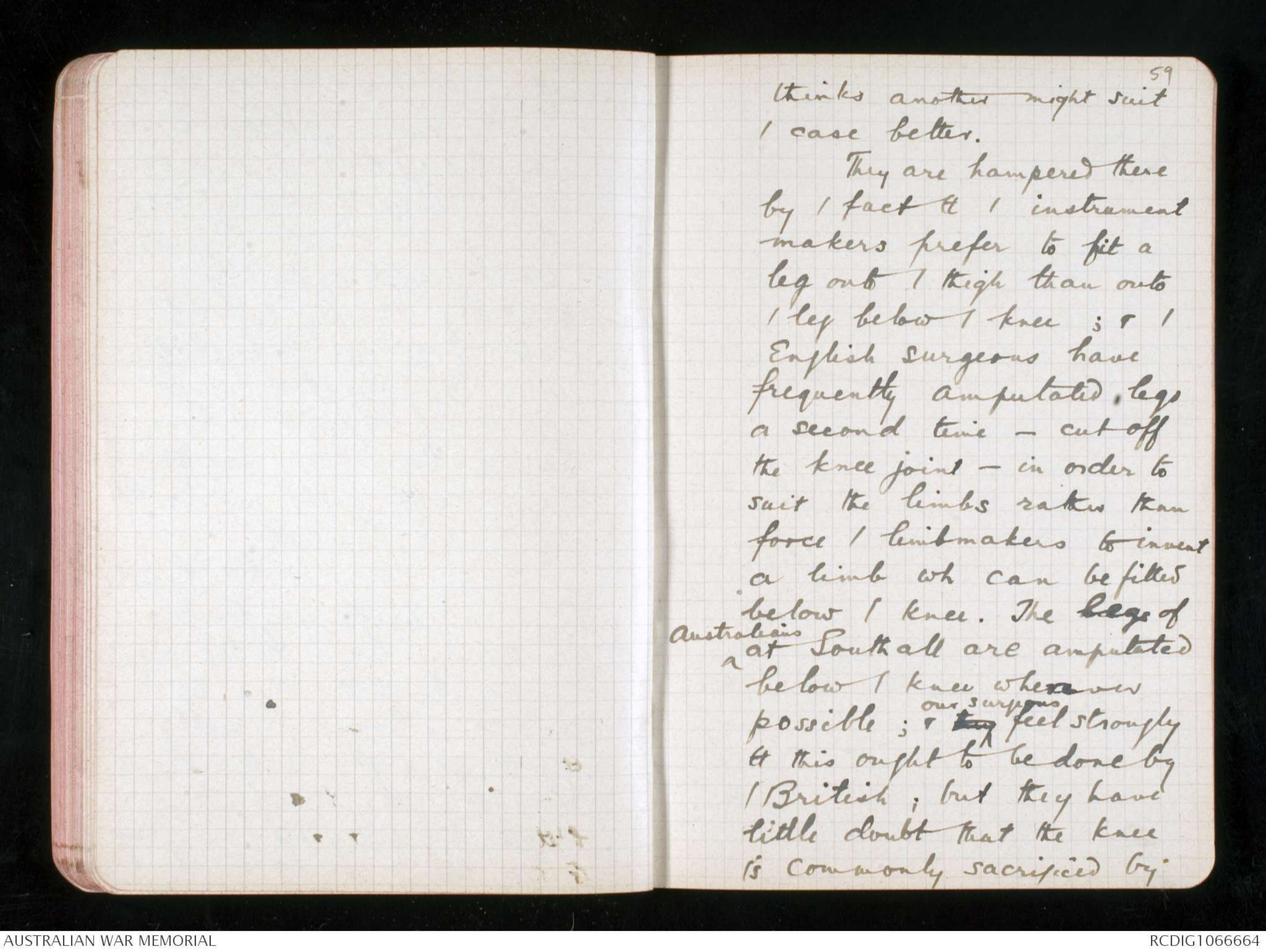
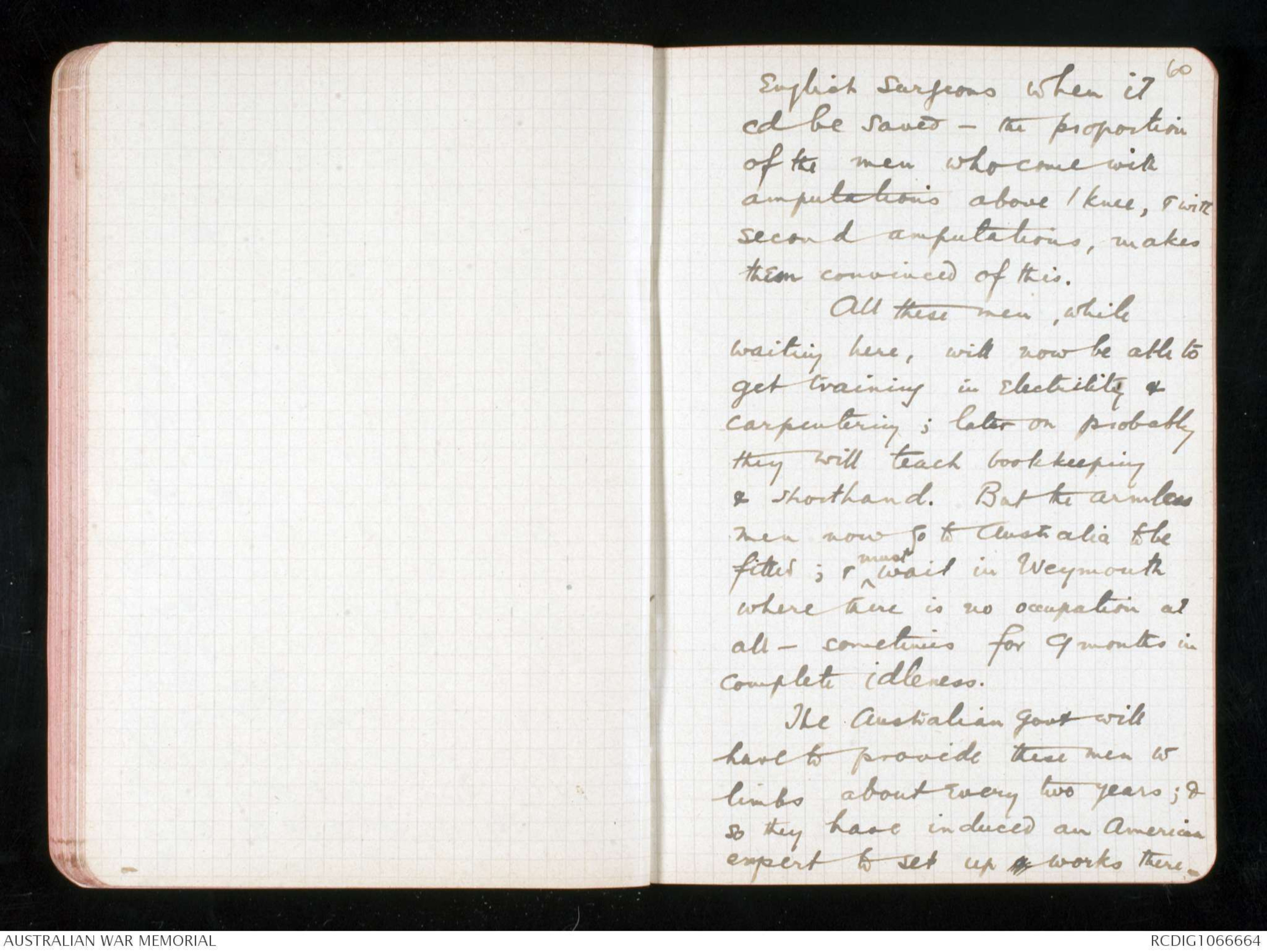
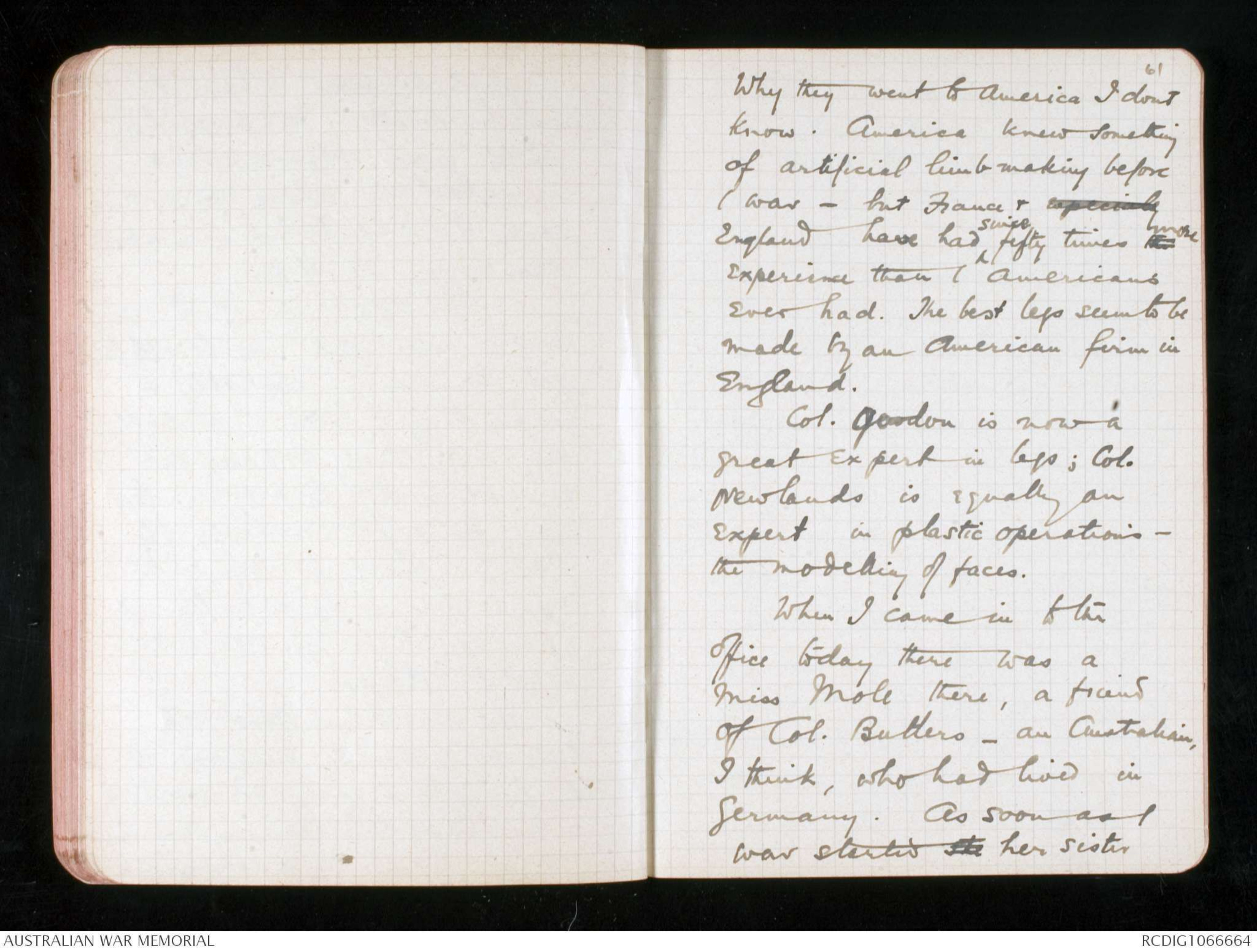
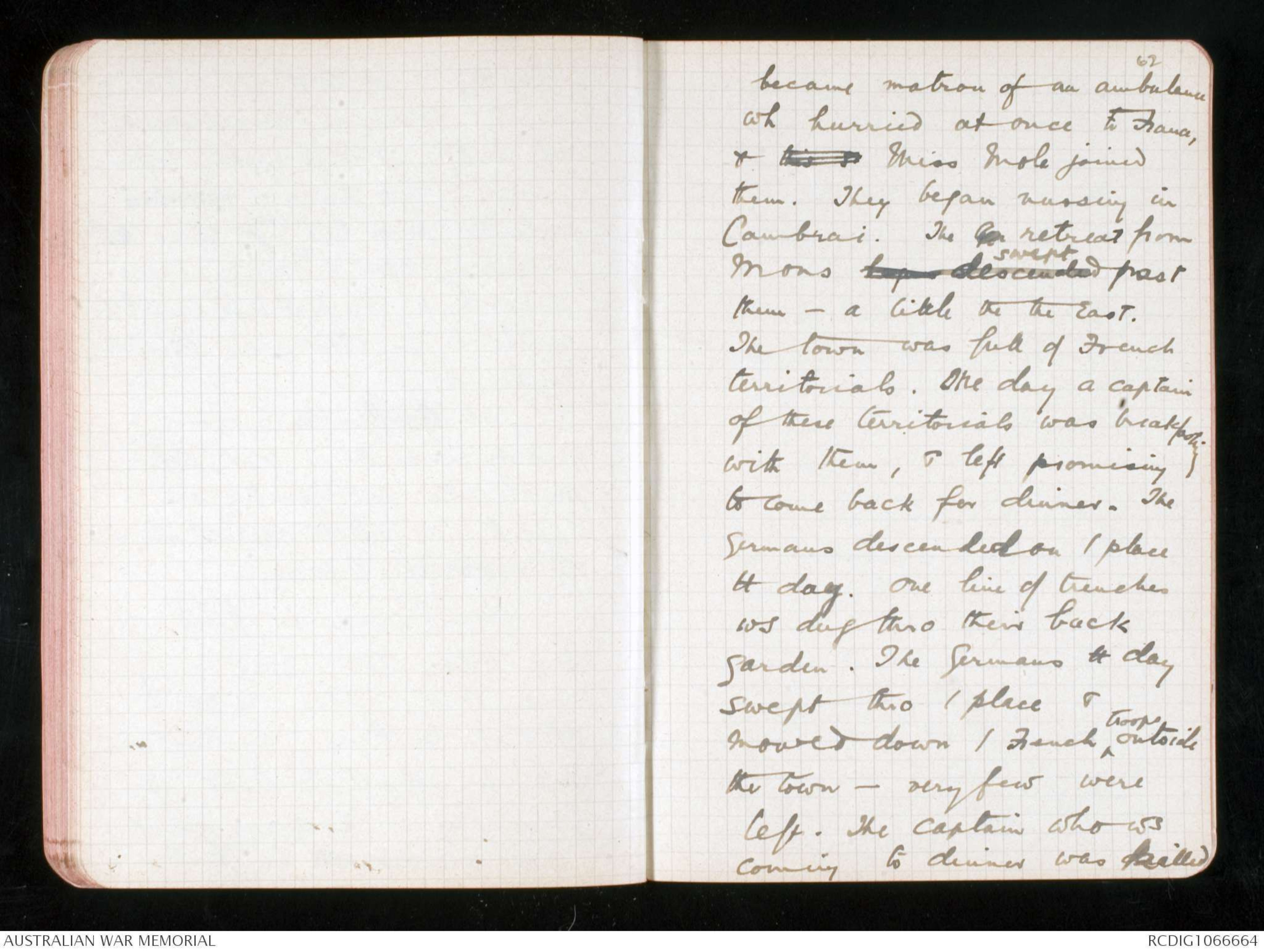
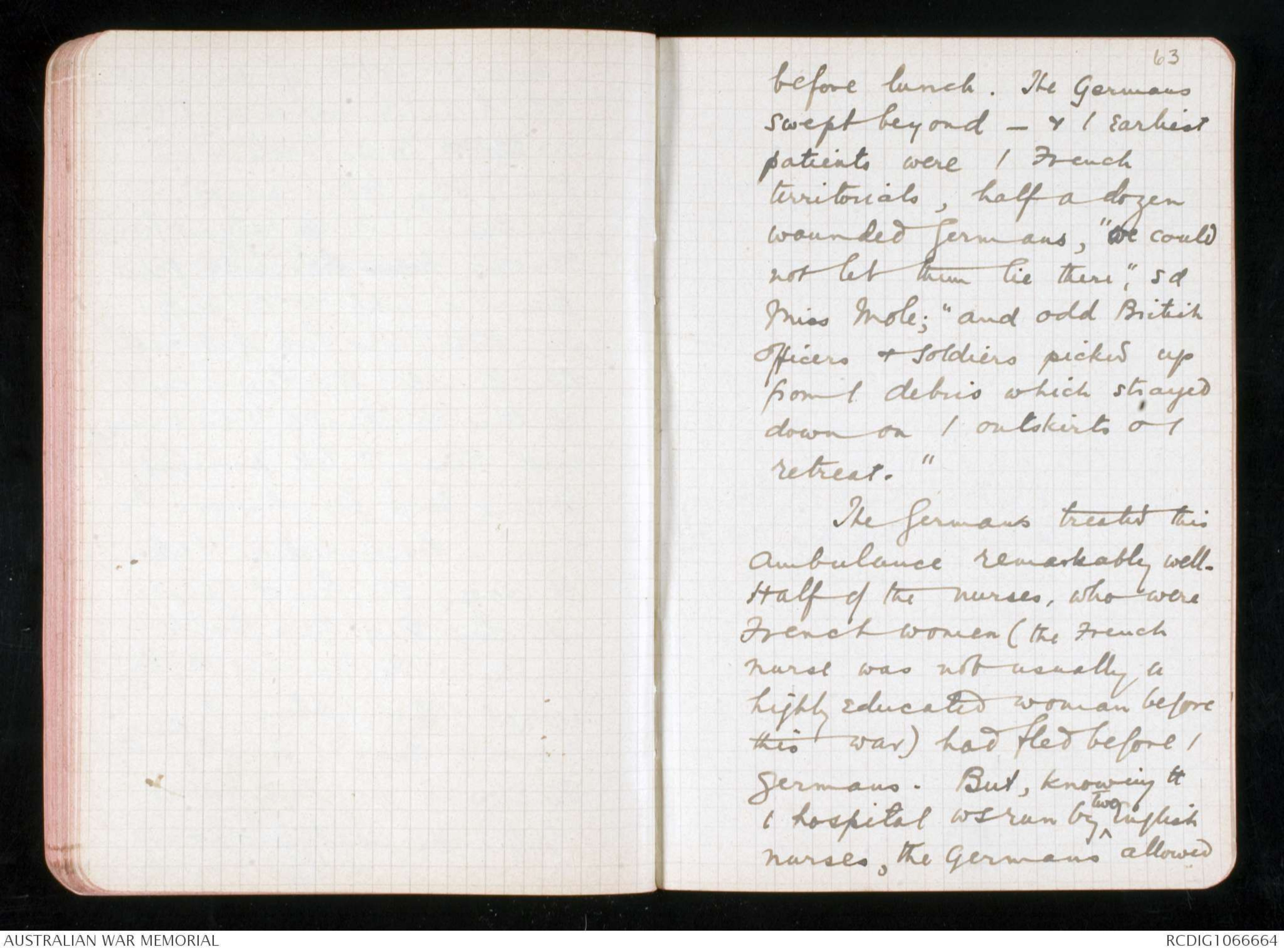
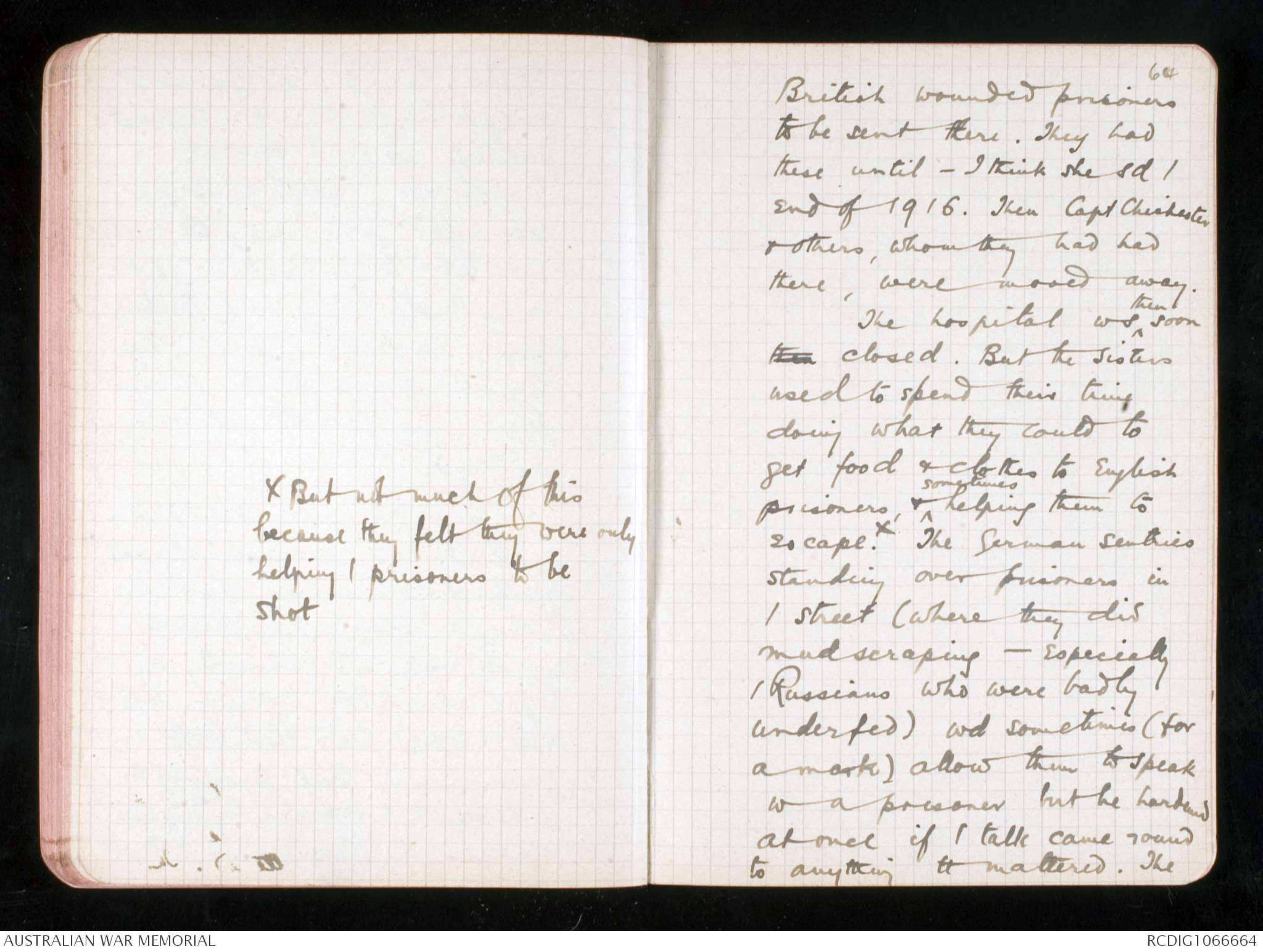
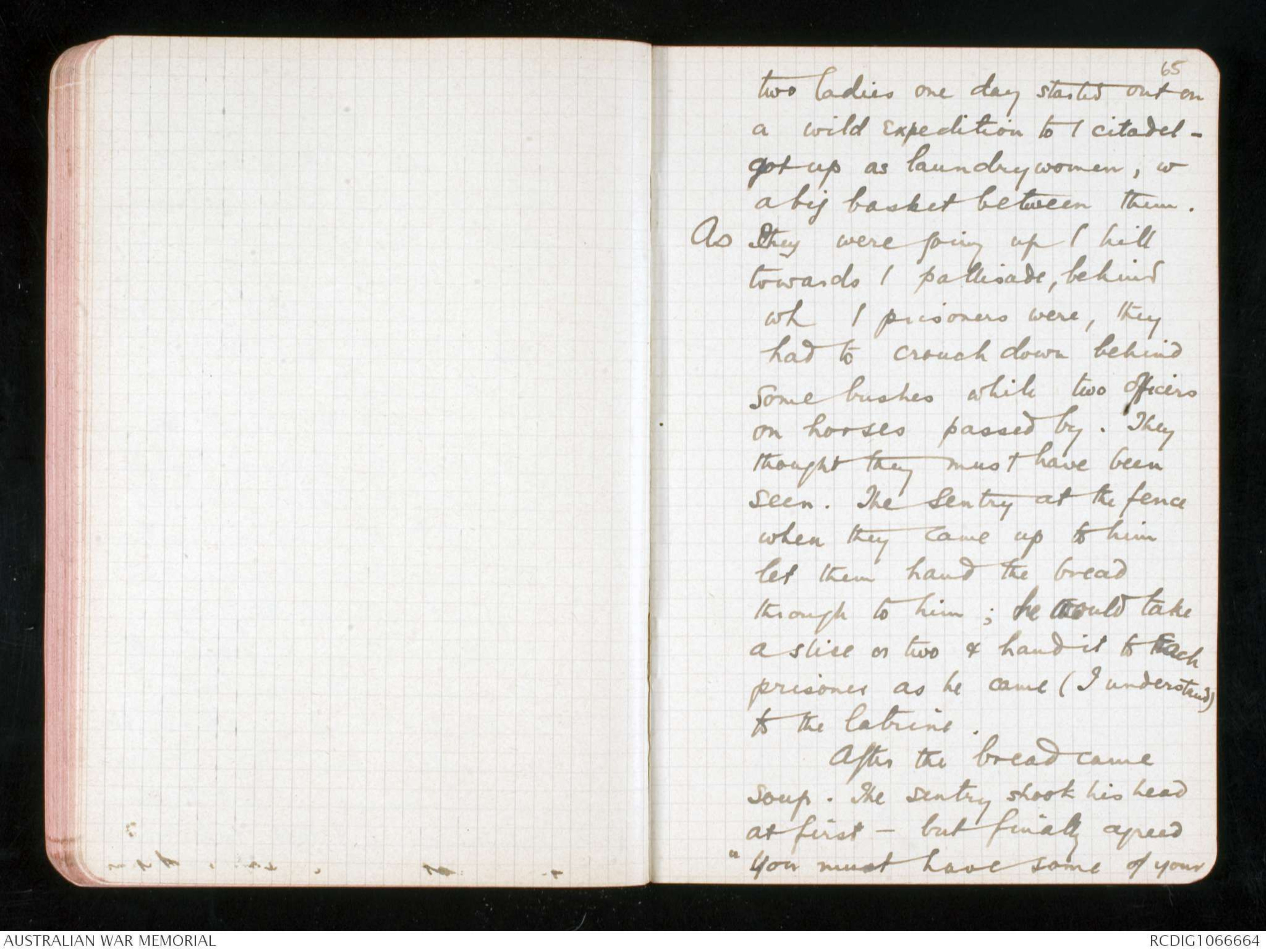
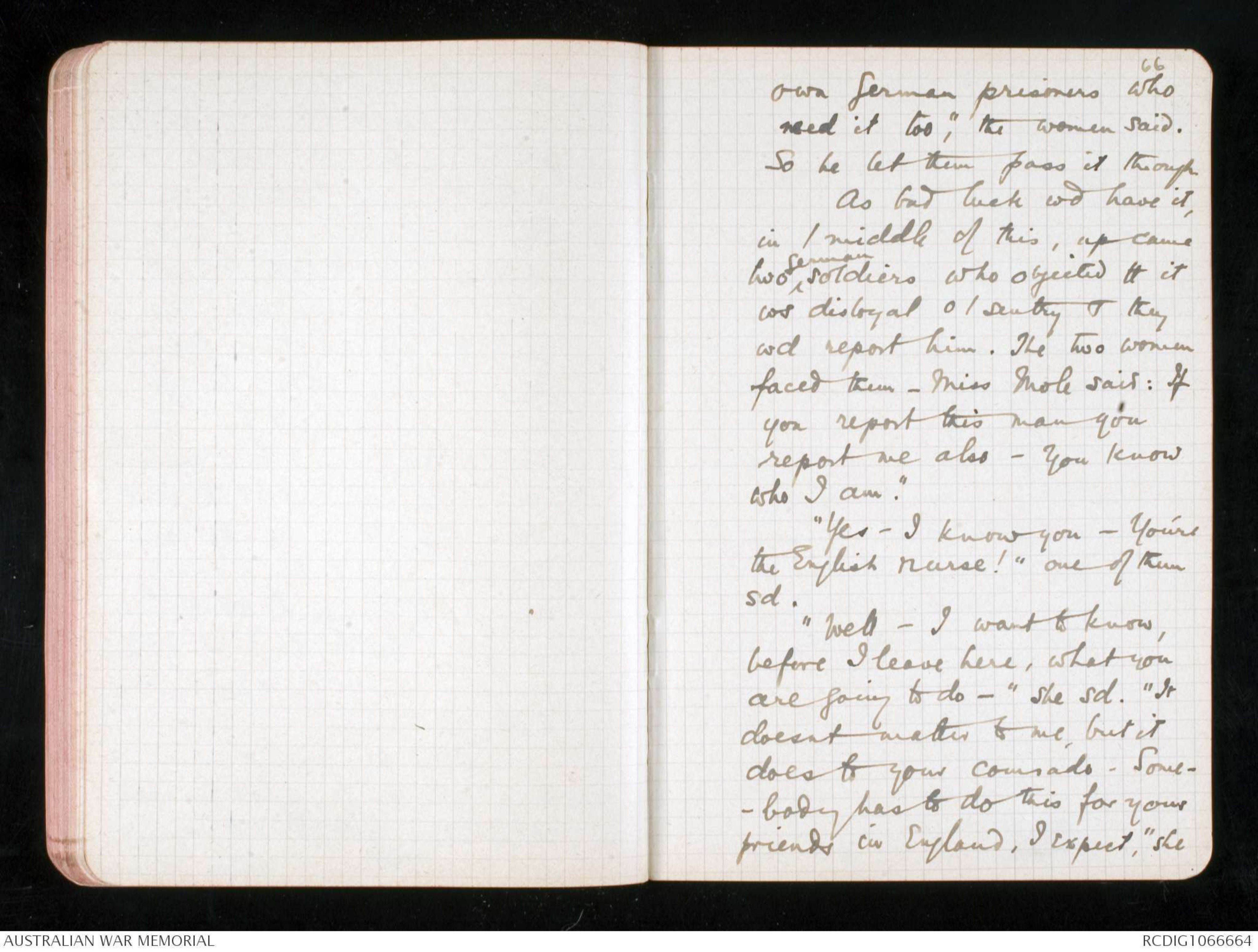
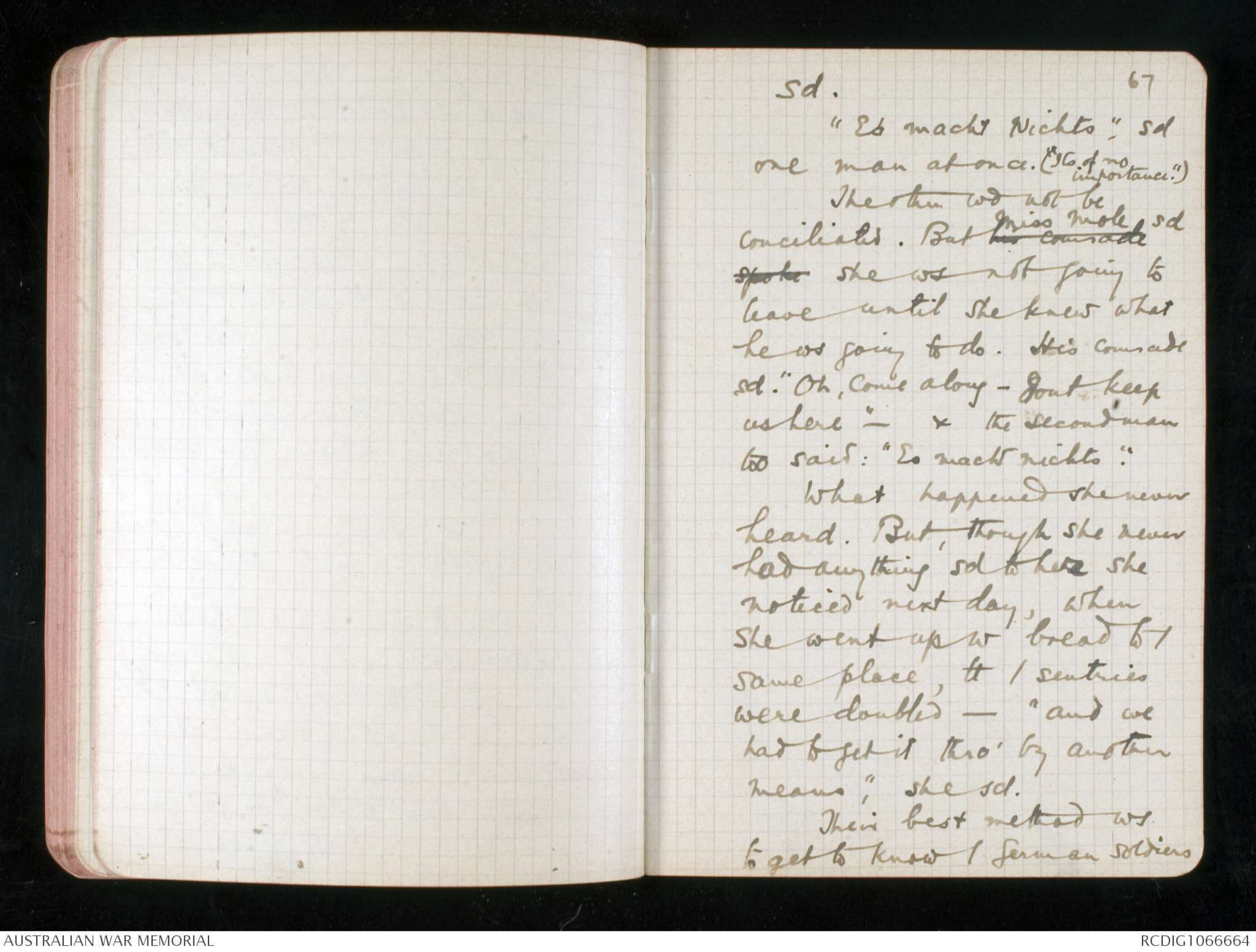
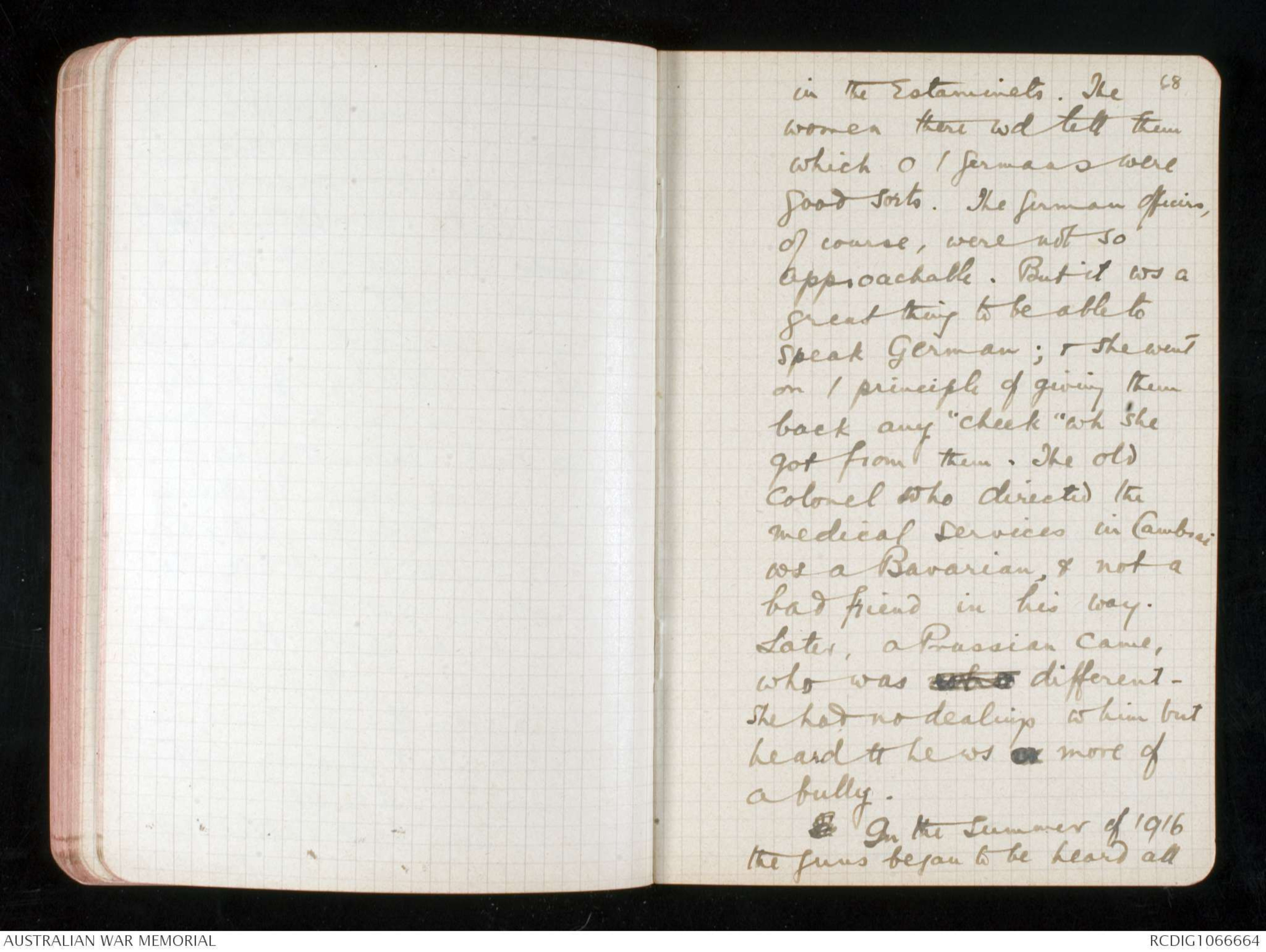
59
thinks another might suit
/ case better.
They are hampered there
by / fact tt / instrument
makers prefer to fit a
leg onto / thigh than onto
/ leg below / knee; & /
English surgeons have
frequently amputated legs
a second time - cut off
the knee joint - in order to
suit the limbs rather than
force / limbmakers to invent
a limb which can be fitted
below / knee. The legs of
^Australians at Southall are amputated
below / knee wherever
possible; & ^our surgeons feel strongly
tt this ought to be done by
/ British; but they have
little doubt that the knee
is commonly sacrificed by
60
English surgeons when it
cd be saved - the proportion
of the men who come with
amputations above / knee, & with
second amputations, makes
them convinced of this.
All these men, while
waiting here, will now be able to
get training in electricity &
carpentry; later on probably
they will teach bookkeeping
& shorthand. But the armless
men now go to Australia to be
fitted; & ^must wait in Weymouth
where there is no occupation at
all - sometimes for 9 months in
complete idleness.
The Australian Govt will
have to provide these men w
limbs about every two years; &
so they have induced an American
expert to set up xx works there.
61
Why they went to America I dont
know. America knew something
of artificial limb making before
/ war - but France & especially
England have had ^since fifty times xx more
experience than / Americans
ever had. The best legs seem to be
made by an American firm in
England.
Col. Gordon is now a
great expert in legs; Col.
Newlands is equally an
expert in plastic operations -
the modelling of faces.
When I came in to the
office today there was a
Miss Mole there, a friend
of Col. Butlers - an Australian,
I think, who had lived in
Germany. As soon as /
war started she her sister
62
became matron of an ambulance
wh hurried at once to France,
& this s Miss Mole joined
them. They began nursing in
Cambrai. The Ger retreat from
Mons xxx descended xx swept past
them - a little the the East.
The town was full of French
territorials. One day a captain
of these territorials was breakfasting
with them, & left promising
to come back for dinner. The
Germans descended on / place
tt day. One line of trenches
ws dug thro their back
garden. The Germans tt day
swept thro / place &
mowed down / French ^troops outside
the town - very few were
left. The captain who ws
coming to dinner was killed
63
before lunch. The Germans
swept beyond - & / earliest
patients were / French
territorials, half a dozen
wounded Germans, "we could
not let them lie there," sd
Miss Mole; " and odd British
officers & soldiers picked up
from / debris which strayed
down on / outskirts o /
retreat."
The Germans treated this
ambulance remarkably well.
Half of the nurses, who were
French women (the French
nurse was not usually a
highly educated woman before
this war) had fled before /
Germans. But, knowing tt
/ hospital ws run by ^two English
nurses, the Germans allowed
X But not much of this
because they felt they were only
helping / prisoners to be
shot.
64
British wounded prisoners
to be sent there. They had
these until - I think she sd /
end of 1916. Then Capt Chichester
& others, whom they had had
there, were moved away.
The hospital ws ^then soonthen closed. But the sisters
used to spend their time
doing what they could to
get food & clothes to English
prisoners, & ^sometimes helping them to
escape. X The German sentries
standing over prisoners in
/ street (where they did
mud scraping - especially
/ Russians who were badly
underfed) wd sometimes (for
a mark) allow them to speak
w a prisoner but he hardened
at once if / talk came round
to anything tt mattered. The
65
two ladies one day started out on
a wild expedition to / citadel -
got up as laundry women, w
a big basket between them.
As they were going up / hill
towards / pallisade, behind
wh / prisoners were, they
had to crouch down behind
some bushes while two officers
on horses passed by. They
thought they must have been
seen. The sentry at the fence
when they came up to him
let them hand the bread
through to him; he would take
a slice or two & hand it to each
prisoner as he came (I understand)
to the latrine.
After the bread came
soup. The sentry shook his head
at first - but finally agreed
"You must have some of your
66
own German prisoners who
need it too," the women said.
So he let them pass it through.
As bad luck wd have it,
in / middle of this, up came
two ^German soldiers who objected tt it
was disloyal o / sentry & they
wd report him. The two women
faced them - Miss Mole said: If
you report this man you
report me also - You know
who I am."
"Yes - I know you - You're
the English nurse!" one of them
sd.
"Well - I want to know,
before I leave here, what you
are going to do -" she sd. "It
doesn't matter to me, but it
does to your comrade. Somebody
has to do this for your
friends in England, I expect," she
67
sd.
"Es macht Nichts," sd
one man at once. ("Its of no importance.")
The other wd not be
conciliated. But his comrade Miss Mole sdspoke she ws not going to
leave until she knew what
he ws going to do. His comrade
sd ."Oh, come along - dont keep
us here"- & the second man
too said: "Es macht nichts."
What happened she never
heard. But, though she never
had anything sd to her she
noticed next day, when
she went up w bread to /
same place, tt / sentries
were doubled -"and we
had to get it thro' by another
means," she sd.
Their best method ws
to get to know / German soldiers
68
in the estaminets. The
women there wd tell them
which o / Germans were
good sorts. The German officers,
of course, were not so
approachable. But it ws a
great thing to be able to
speak German; & she went
on / principle of giving them
back any "cheek" wh she
got from them. The old
Colonel who directed the
medical services in Cambrai
ws a Bavarian, & not a
bad friend in his way.
Later, a Prussian came,
who was whox different -
She had no dealings w him but
heard tt he ws as more of
a bully.X In the summer of 1916
the guns began to be heard all
 Arlene Baade
Arlene BaadeThis transcription item is now locked to you for editing. To release the lock either Save your changes or Cancel.
This lock will be automatically released after 60 minutes of inactivity.